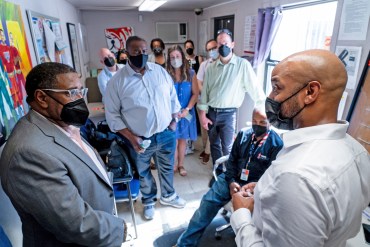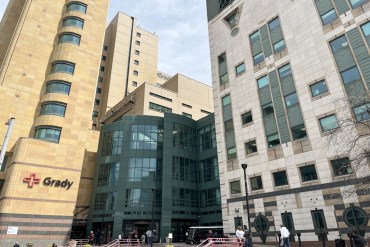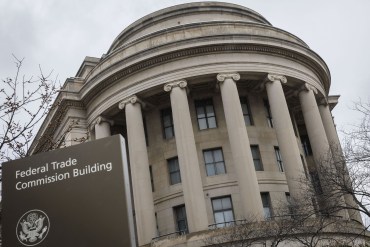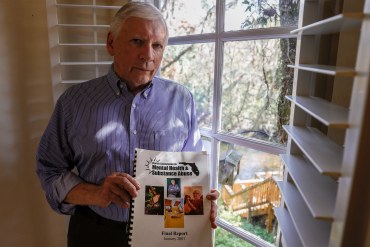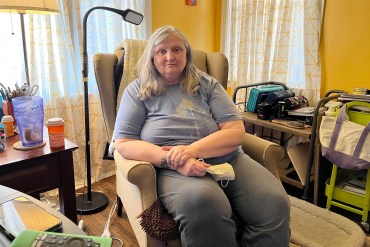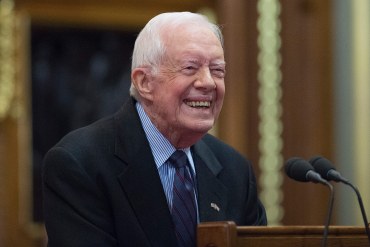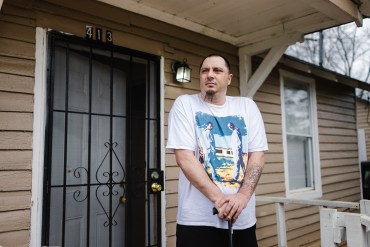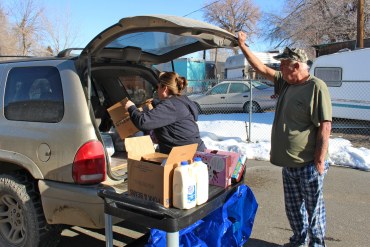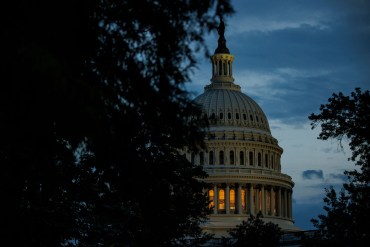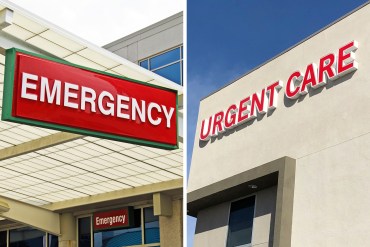How a 2019 Florida Law Catalyzed a Hospital-Building Boom
In Wesley Chapel, Fla., near Tampa, residents will soon have three general hospitals within a five-minute drive. The new construction is part of a hospital-building boom across Florida unleashed almost four years ago, when the state dropped a requirement that companies obtain government approval to open new hospitals.
¿Se podrá cumplir con la meta de terminar con la epidemia de VIH para 2030?
Debido a las interrupciones de la pandemia, los funcionarios federales no han tenido estimaciones sólidas de nuevas infecciones o el número de personas que viven con VIH desde finales de 2019.
US Officials Want to End the HIV Epidemic by 2030. Many Stakeholders Think They Won’t.
The federal government’s ambitious plan to end the HIV epidemic, launched in 2019, has generated new ways to reach at-risk populations in targeted communities across the South. But health officials, advocates, and people living with HIV worry significant headwinds will keep the program from reaching its goals.
Special Medicaid Funds Help Most States, but Prompt Oversight Concerns
Georgia is among 35-plus states that have used an under-the-radar federal funding mechanism to boost payments for hospitals and other providers under Medicaid. But a government watchdog and a congressional advisory commission say sparse oversight makes it hard to tell if the “directed payments” program is meeting its goals.
Banning Noncompete Contracts for Medical Staff Riles Hospitals
It’s about the money — on both sides — as arguments swirl about patient safety, rising prices, and paying back on-the-job training.
A Lot of Thought, Little Action: Proposals About Mental Health Go Unheeded
A recent report detailing problems with Florida’s patchwork mental health system had reached conclusions nearly identical to those of a similar report from more than 20 years ago. The echoes between the findings are unmistakable. And Florida isn’t the only state struggling with the criminalization of mental illness, a lack of coordination between providers, and insufficient access to treatment.
¿Ayudan las nuevas guías sobre opioides a los pacientes con dolor crónico?
Las recomendaciones dejaron a muchos pacientes lidiando con las consecuencias para la salud mental y física de la reducción rápida de la dosis o la suspensión abrupta de los medicamentos que habían estado tomando durante años, lo que conlleva riesgos de abstinencia, depresión e incluso suicidio.
New CDC Opioid Guidelines: Too Little, Too Late for Chronic Pain Patients?
In November, the Centers for Disease Control and Prevention released new guidelines for prescribing opioids for pain, allowing physicians more flexibility. But doctors, patients, and advocates wonder if the updated standards will be too little, too late to help chronic pain patients in a country still focused on fighting the ongoing opioid crisis.
Pandemic Stress, Gangs, and Utter Fear Fueled a Rise in Teen Shootings
With their brains still developing and poor impulse control, teens who carry firearms might never plan to use them. But some do.
Jimmy Carter se enfrentó al horrible gusano de Guinea cuando nadie más lo hizo. Y ganó
El Centro Carter informó que en 2022, solo hubo 13 casos humanos registrados de la enfermedad, un número provisional que se confirmará oficialmente, probablemente este mes.
Jimmy Carter Took on the Awful Guinea Worm When No One Else Would — And Triumphed
The effort to end Guinea worm disease relies almost entirely on changes in people’s behavior. There is no cure, no vaccination. When the 39th president of the United States left office, Jimmy Carter campaigned to eradicate the disease.
Reentry Programs to Help Former Prisoners Obtain Health Care Are Often Underused
More than 600,000 people are released from prisons every year, many with costly health conditions but no medications, medical records, a health care provider, or insurance.
Journalists Discuss Insulin Prices, Gun Violence, Distracted Driving, and More
KHN and California Healthline staff made the rounds on national and local media this week to discuss their stories. Here’s a collection of their appearances.
Fin de beneficios extra de SNAP por la pandemia amenazan la seguridad alimentaria en zonas rurales
Un mayor porcentaje de personas depende de SNAP en áreas rurales en comparación con las áreas metropolitanas. Y esas zonas ya tienen tasas más altas de inseguridad alimentaria y de pobreza.
Looming Cuts to Emergency SNAP Benefits Threaten Food Security in Rural America
In a few weeks, pandemic-era emergency boosts to SNAP benefits, formerly known as food stamps, will be rolled back across 32 states, putting more pressure on food pantries to fill the gaps and exacerbating challenges for rural areas, where a greater share of people are enrolled in the program compared with metro areas.
Journalists Probe Problems in Providing Care for Foster Kids and Propping Up Addiction Treatment
KHN and California Healthline staff made the rounds on national and local media this week to discuss their stories. Here’s a collection of their appearances.
Unmet Needs: Critics Cite Failures in Health Care for Vulnerable Foster Children
More states are moving to specialized managed-care contracts solely to handle medical and behavioral services for foster kids. But child advocates, foster parents, and even state officials say these and other care arrangements are shortchanging foster kids’ health needs.
Abortion Debate Ramps Up in States as Congress Deadlocks
Abortion is a top issue for state lawmakers meeting for their first full sessions since Roe v. Wade was overturned.
Why People Who Experience Severe Nausea During Pregnancy Often Go Untreated
Because morning sickness is common, severe nausea in pregnancy can be minimized by doctors or the patients themselves. Untreated, symptoms can worsen — and delays lead to medical emergencies.
¿Clínica de urgencias o sala de emergencias? Cómo decidir donde recibir la atención adecuada
Las personas heridas o enfermas deben decidir con cuidado, en un momento de estrés, cuál es el mejor lugar para buscar ayuda. Y deben tomar esa decisión en medio de un número creciente de opciones.





